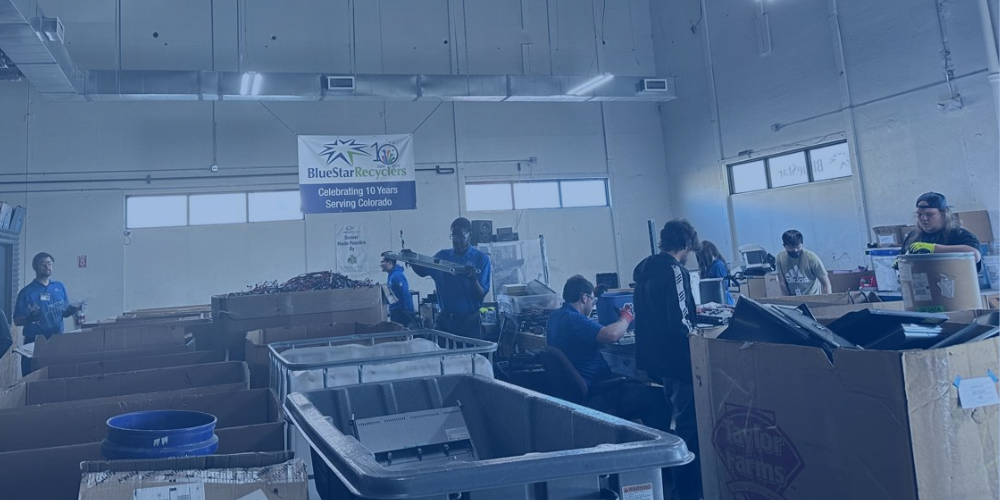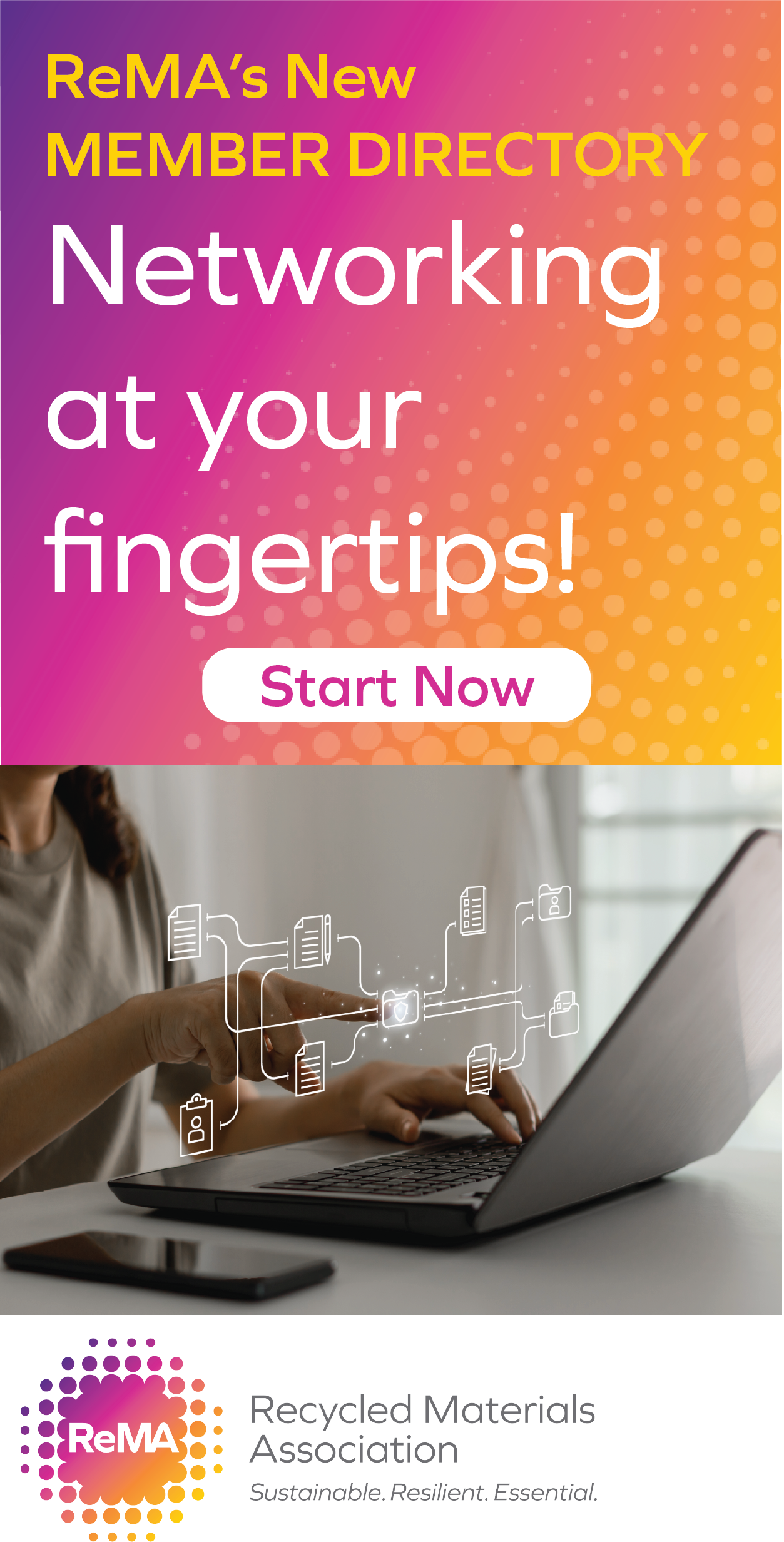Blue Star Recyclers, in Denver, Colorado, was founded in 2009 with a mission to ethically recycle electronics and other materials to create local jobs for people with autism and other disabilities; a population facing around 80% unemployment/underemployment. It’s estimated that each year 50 million tons of electronic waste is produced and less than 20 percent is recycled. When electronics are improperly disposed in regular landfills or illegally dumped, heavy metals can leach directly into the soil, causing contamination of underlying groundwater or contaminating future plant life.
With less than 10% annual turnover and 98.43% task-engaged on the clock — about twice that of the average American employee — Blue Star’s method was a success that led to the launch of ADVANCE+ in 2019. ADVANCE+ helps train electronics reuse and recycling companies on hiring and employing people with autism and other disabilities.
ISRI’s AVP of Sustainability, Natalie Messer Betts, recently had the opportunity to visit the Blue Star facility and see ADVANCE+ in action. ISRI News sat down with Betts to learn more about this initiative and how ISRI plans to collaborate.
How did you and ISRI learn about Blue Star Recyclers and their ADVANCE+ program?
I had actually heard of Blue Star many years ago when I was working with the City of Austin on recycling economic development, but I didn’t know they had turned their individual company model into a full program for other electronics recyclers to replicate. When I started at ISRI, I interviewed all of our Sustainability Pathways Program participants to learn about what they needed, and what I heard over and over again was that they needed to fill operations roles. Around that time, I heard about ADVANCE+ — the Recycling Education and Research Foundation (RERF) had been initially connected to the program — it seemed like a perfect fit to meet this need and to help support our sustainability at ISRI through social impact and inclusivity.
How does ISRI plan to collaborate with Blue Star?
Blue Star is part of an informal advisory group working with ISRI staff to build an inclusion program for ISRI members that is modeled after ADVANCE+ and customized to ISRI member needs. The group includes other partners from the ADVANCE+ program: e-Stewards and James Emmett & Company (JEC), the non-profit Opportunity Enterprises, RERF and the Workforce Development Working Group.
How does the ADVANCE+ program fit in with ISRI’s current and future initiatives?
The inclusion program is a response to ISRI members’ feedback that they would like to see more support from ISRI on their workforce development, and particularly with finding operational talent. This program is an opportunity to learn how to effectively hire and retain a part of the workforce that faces 80%+ unemployment, that is a largely untapped source of talent. Successfully integrating individuals with disabilities into a workplace does take some specialized knowledge of best practices in sourcing, onboarding and training, and hands on support. This program offers our members training and guidance in those areas.
During the ISRI 2023 Fall Meeting, you attended a tour at the Blue Star facility. What was your experience during the tour?
It was amazing to see the business model in action, and you could tell right away that there was tremendous employee engagement with the mission of the business and with the work itself — there was a wall decorated with recovered parts that one employee had started, another showed us a small ‘museum’ of electronics rarities that had come into the facility that they had set aside. One thing that I walked away with was an appreciation for the fact that with the right support and in the right role, a neurodivergent or differently abled person is not just as productive as a neurotypical employee but more productive. Sometimes we are inclined to think that if a workforce strategy is creative and is good for society, then there must be some trade-off in the business outcomes, but Blue Star shows that isn’t the case.










